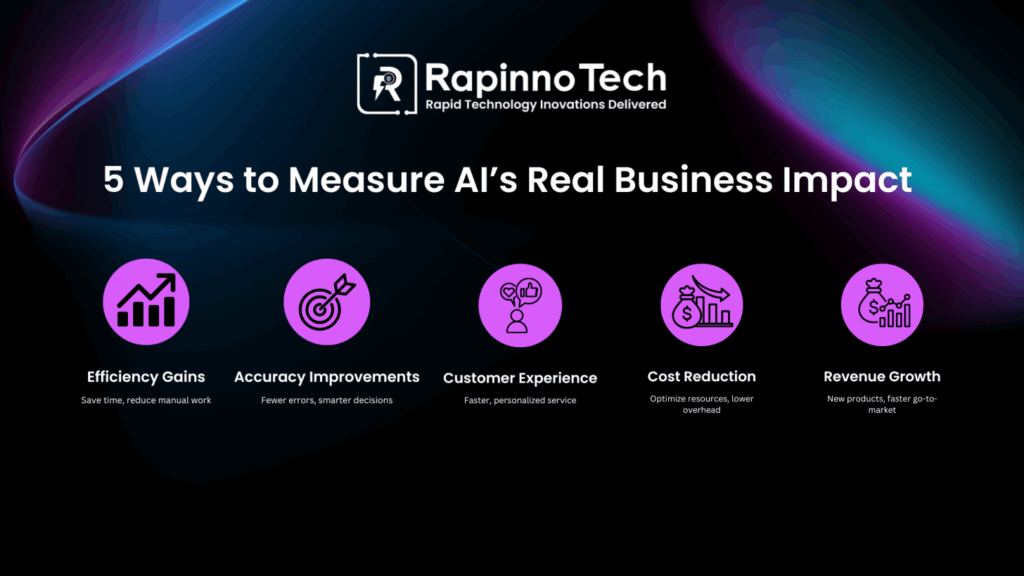Measuring AI’s Real Business Impact: Beyond the Hype
Measuring AI’s Real Business Impact: Beyond the Hype
AI is everywhere. It’s in our search engines, chatbots, analytics tools — even writing this article could involve AI. But here’s the hard truth: AI isn’t valuable just because it’s cool. It’s valuable when it creates measurable business outcomes.
Too many organizations fall into the trap of chasing AI for the buzz factor, only to realize later that “cool tech” doesn’t always translate into ROI. So, how do you cut through the noise and evaluate AI like any other business investment?
Let’s break it down.
Efficiency Gains
AI excels at automating repetitive, manual, and time-consuming tasks.
- Automating IT helpdesk ticket triage
- Extracting and classifying invoices
- Scheduling and workflow management
Every hour saved is money saved. Multiply that across departments, and the impact compounds.
Accuracy Improvements
Humans make mistakes — especially when tasks are repetitive. AI, when designed well, reduces errors.
- Fraud detection systems flagging anomalies more reliably than manual review
- AI-driven diagnostics supporting doctors with higher precision
- Predictive maintenance catching failures before they happen
Accuracy is not just about doing things faster — it’s about doing them right.
Customer Experience
Customers expect instant, personalized responses. AI makes that scalable.
- Chatbots providing 24/7 support
- Recommendation engines tailoring products
- Voice AI reducing wait times in call centers
A smoother customer experience often translates directly into loyalty and revenue.

Cost Reduction
AI reduces costs by streamlining processes and optimizing resource use.
- Energy optimization in data centers
- Intelligent supply chain forecasting
- Automated reporting in compliance-heavy industries
The key is not just cost-cutting, but reallocating resources to higher-value work.
Revenue Growth
This is where AI shifts from being a “support tool” to a growth driver.
- AI-enabled product innovation (e.g., personalized insurance plans, AI-powered SaaS features)
- Faster go-to-market through automated development and testing
- Identifying upselling and cross-selling opportunities at scale
Here’s the litmus test: If AI disappeared tomorrow, would your revenue suffer? If yes, it’s become a true business driver.
The Secret: KPIs First, AI Second
The most successful organizations don’t ask, “What can AI do for us?” They ask: 👉 “Which business metrics matter most, and can AI help us move them?”
That’s how you avoid chasing “shiny tools” and instead focus on measurable outcomes.
Because at the end of the day, AI isn’t just about building systems that sound smart — it’s about building businesses that are smart.
Closing Thought
AI’s business impact isn’t measured in lines of code or number of models deployed. It’s measured in time saved, money earned, costs reduced, and customers delighted.
The companies that understand this are the ones turning AI from a buzzword into a real competitive advantage.





